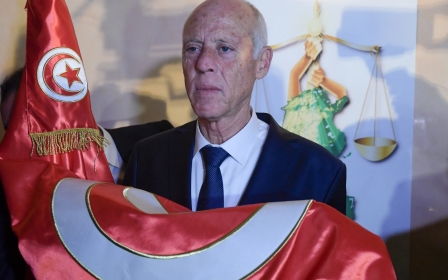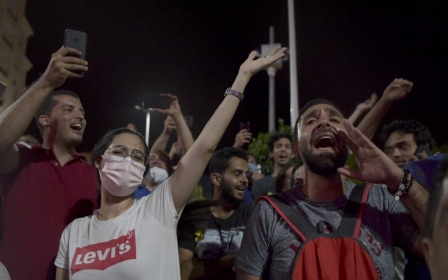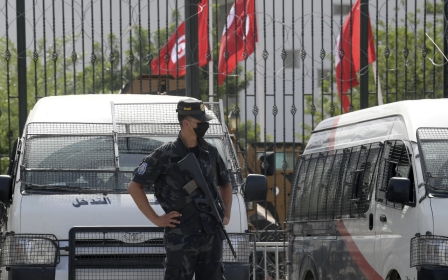Tunisia: Extension of parliament's suspension expected but concerning, analysts say
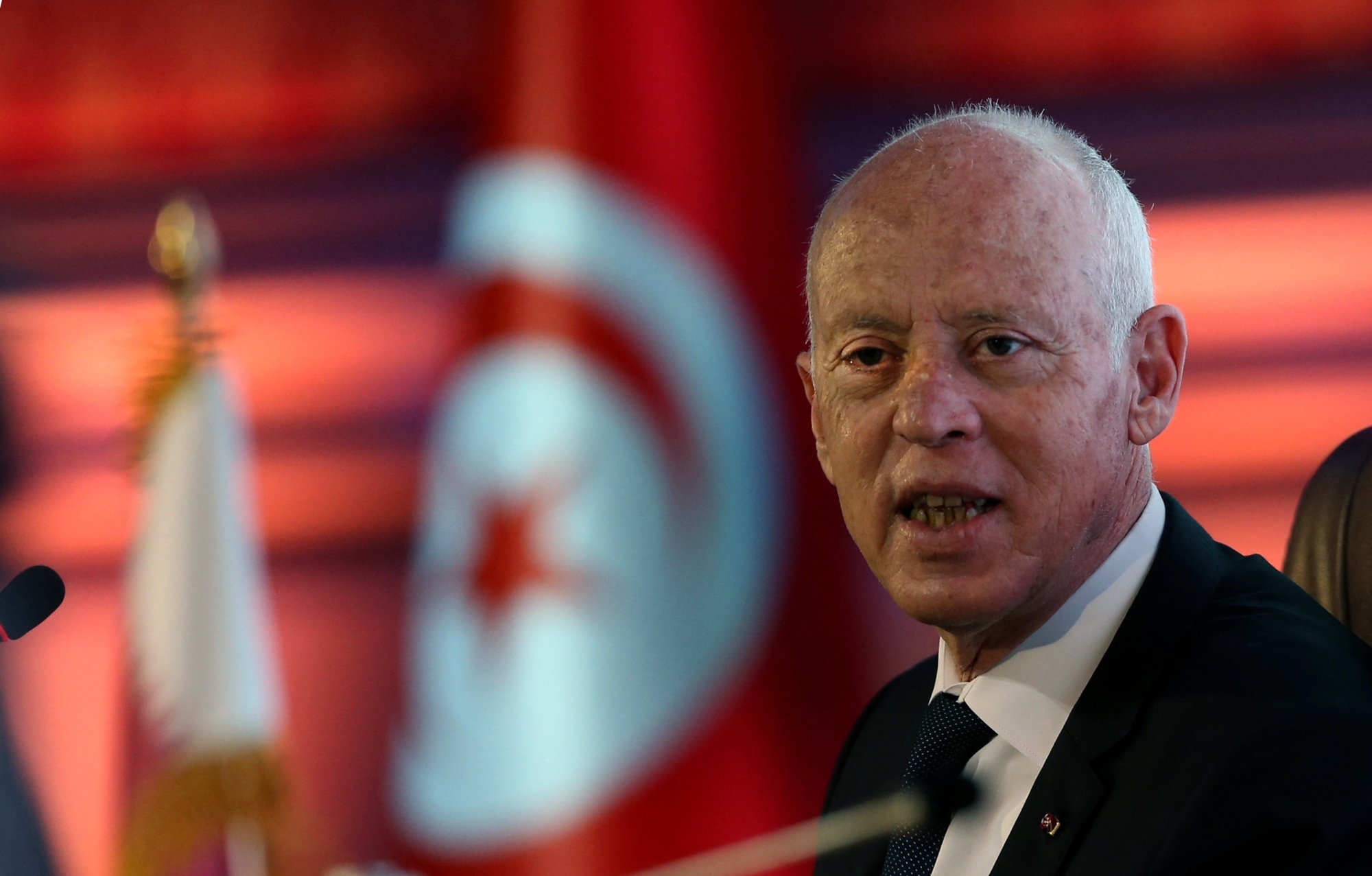
Tunisian President Kais Saied's indefinite suspension of the country’s parliament, overriding a 30-day deadline, has exacerbated fears of the nature of Saied's power grab, what opponents and constitutional lawyers have called a “coup”.
In a statement posted to Facebook late Monday night, Tunisia's presidency said that exceptional measures announced after Saied invoked Article 80 of the constitution in late July - including the suspension of parliament and the removal of parliamentary immunity - would be extended until “further notice”.
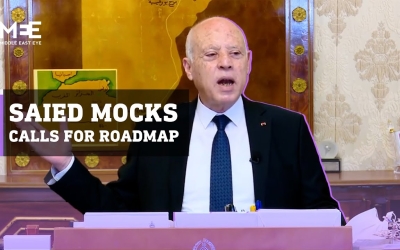
New MEE newsletter: Jerusalem Dispatch
Sign up to get the latest insights and analysis on Israel-Palestine, alongside Turkey Unpacked and other MEE newsletters
The statement added that the president would address the people in the coming days.
On 25 July, Saied dismissed Prime Minister Hichem Mechichi, saying the coronavirus and economic situation had become so dire that he needed to freeze parliament and dismiss the government, as well as launch an anti-corruption drive. Mechichi's dismissal was swiftly followed by the removal of other ministers and government employees, as well as a string of arrests and travel restriction orders issued against MPs, judges and businesspeople, many of whom have been accused of corruption.
Saied has yet to appoint a prime minister or set out a road map for the country’s exit from its triple health, economic and political crises.
In the Tunisian constitution, Article 80 - an emergency clause intended for times of crisis - states that any exceptional measures can be taken as necessary, but that the extension of such measures must be approved by a constitutional court after 30 days.
Such a court has yet to be established in Tunisia, despite its centrality to the country’s balance of powers in the framework of the 2014 constitution.
'Worrisome development'
Commenting on Monday night's presidential statement, Sharan Grewal, North Africa watcher and assistant professor at William and Mary College in the US, said that while the extension was expected, it was “a worrisome development”.
“If it wasn’t clear already, Kais Saied is operating in extralegal territory without any checks on his power,” Grewal told Middle East Eye.
In Grewal’s opinion, the extension reveals two things.
“First, that Kais Saied's honeymoon period isn’t yet over, and he knows it. He clearly feels confident enough in his public support to think he can get away with an indefinite suspension of parliament, without any timeline,” the academic said.“Secondly, it reveals that Saied is buying time. He doesn’t know how to fix the system, or else he would have announced some sort of roadmap or constitutional revision in the past 30 days.”
Tunisian political analyst Ahlem Hachicha, however, feels that the extension is “deliberate” and that Saied knows exactly where he is going.
“This was expected. We expected this from day one, when Saied announced these measures," Hachicha told MEE. "He has given the people some time to get used to the situation, so that it would diminish people’s shock and they wouldn’t react angrily.”
Hachicha believes that Saied is applying his own understanding of the constitution when it suits him, and that “there are no rules”.
“In a state of law, the law comes first, because the law is the only neutral and objective set of rules between individuals. If you take that out, then you are at the mercy of Saied’s personal will,” she said.
“He’s not taking into consideration any form of power balance or opposition. There’s just one way of doing things, and it’s his way. If you’re against that, then you are told that you are either corrupt or an Islamist.”
Professor of Middle East Politics at NYU Abu Dhabi Monica Marks said that Saied's decision to indefinitely extend the state of emergency falls in line "with a pattern of paralysis" that has shaped the Tunisian head of state's apparent inability to form a government or provide a roadmap.
'A lot of people aren't concerned that Saied is violating checks and balances, or locking out political pluralism, or moving the country on a course towards autocracy - they were more upset that he wasn’t going far enough, fast enough'
- Monica Marks, Professor of Middle East Politics at NYU Abu Dhabi
Marks however noted that some of Saied's supporters will be happy with the extension, as they want to see him "holding all three reins of the executive, judicial and legislative" powers.
"They think that he has barely started, that there are a lot of corrupt people out there, that he needs more time and that he shouldn’t stop now," she told MEE.
"For a lot of people, they aren't concerned that Saied is violating checks and balances, or locking out political pluralism, or moving the country on a course towards autocracy - they were more upset that he wasn’t going far enough, fast enough," the academic added.
Most observers are waiting to see what Saied will announce in his promised speech.
So far, there has been next to no dialogue between Saied, political parties and civil society actors. Analysts say that Saied's isolation and unwillingness to speak openly means that it is difficult to predict what awaits the country, while pressing questions such as Tunisia's IMF negotations remain unanswered.
Marks speculates that there's a "high chance" that Saied may try to change the electoral law or the constitution, either through a presidential decree of by referendum.
Local commentators have also speculated that Saied could bring in a new constitution to replace that of 2014, with elements of the constitution from 1959.
"This change could be maximalist - he could upend the entire electoral system, empowering both the president and local direct democracy at a municipal level; shaping governance much like an hourglass," Marks hypothesised.
"However, Saied's creative project for the transformation of governance relies on the assumption that, if you liberate an individual from political parties, then an individual becomes essentially uncorrupted. In my opinion, this is reliant on a fundamental misunderstanding of human nature."
This article is available in French on Middle East Eye French edition.
Middle East Eye delivers independent and unrivalled coverage and analysis of the Middle East, North Africa and beyond. To learn more about republishing this content and the associated fees, please fill out this form. More about MEE can be found here.


